How to be a successful club-run captain
No club could operate its weekly rides without someone to organise and lead them — Cycling Weekly takes a closer look at what’s required from a club-run captain
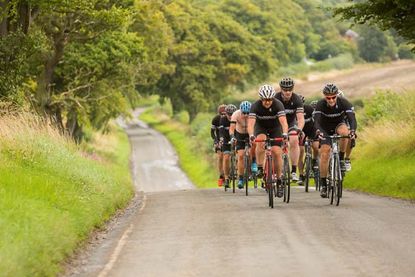
On the club run.
Arriving for a recent Sunday ride, Rockingham Forest Wheelers’ club run captain was faced with a new problem. During two years in the post he had developed various methods for dealing with issues, but this was a new and very modern one.
“Do not allow somebody on an e-bike on the front,” John Aldridge tells CW. “It turns into a Derny race; they just expect to go at 20mph everywhere, including uphill because they can, and it tears the legs off everybody.
“We were spread out over about a mile and people were struggling to get back on the group, so we might just as well have been riding as individuals.”
It’s not just e-bikes that have changed the face of the club run in recent years.
>>> 10 types of rider you’ll see on every club run
“There were no garden centres, no 24-hour supermarkets on the outskirts of town, it was a different world,” reminisces Steve Wakefield of Grimsby’s Lindsey Roads CC.
“We used to go out as a group of 40 and ride down A-roads that were deserted. Then, in the 1980s, we started avoiding those and putting a bit more thought into our routes.”
Get The Leadout Newsletter
The latest race content, interviews, features, reviews and expert buying guides, direct to your inbox!
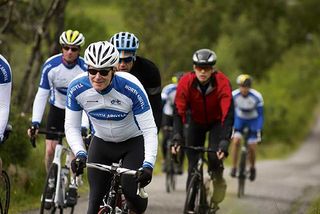
The weekly club run is the heart of most clubs — where it lives and breathes, where relationships are born and solidarity is built. Without the weekend ride many clubs would dissolve, which makes the role of the club-run captain critical to the very life of a club.
Crucial role
Ride captains are responsible for ensuring safe and enjoyable rides for everyone, the role requiring a mastery of navigation, compromise and persuasion.
To be successful they must set and regulate speed, cajole the slower riders and contain the faster ones.
When a mechanical halts proceedings everyone looks to them, and the ride leader even takes the blame when a cafe’s fruit cake is slightly dry.
Your club-run captain isn’t simply out for a ride, they are talking responsibility, so if you hear your mate berating them for going too slow, or you visit your least favourite cafe for the third time in a year, remember there is probably a good reason behind it and that a thank-you goes a long way.
“It’s my life and when somebody says they have had a good day that’s what makes it all worthwhile,” says Steve Plester of Mapperley CC.
http://www.youtube.com/watch?v=xQay-NhSlnY
Six key skills for the successful club-run captain
1 Take control
You can set the tone of a ride if you start on the front, but you don’t have to stay there to ensure the ride is smooth.
“You have to be quite abrupt if someone is riding like an idiot,” says Clive Farley of Bishop’s Stortford CC. “If they go off the front they will get shouted at in no uncertain terms. Next time go in the fast group.”
“It’s a club run,” says Steve Plester, Mapperley CC’s captain of 20 years. “I’ll accept the pace going up but as soon as I realise somebody’s not coping, I’ll tell them to knock it back. They usually do.”
2 Be creative
Don’t just create varied routes; come up with innovative ways of solving the inevitable problems that arise.
“I knew a club captain who would sit on the front,” Plester tells us. “If the fast boys thought it was too slow they would hit the front and the pace would go up. He would never say anything, he’d just signal left.
The fast ones would be in a straight line and the rest of club would turn left and go a different way.”

3 Go the extra mile
Different clubs require different levels of commitment but an absent ride leader can leave clubmates confused.
“You’ve got to have commitment,” Plester explains. “I was ill in bed one morning, so I couldn’t make it, but the phone goes and all I could hear was bickering. They said, ‘We need to know where to go.’
“So I had to tell them where to go from my sick bed. As soon as I told them it was settled, but they couldn’t make their own mind up.”
4 Be tooled up
“The first thing I learnt was to carry a decent pump and always have plenty of tools on me,” says John Aldridge of Rockingham Forest Wheelers. “You would be surprised how many people come out without a pump, without a spare tube and without a tool kit. Luckily I’m mechanically minded.”
St Neots CC’s Simon Richardson has become wise to excuses. “I recently changed three tubes for someone, but the last time I was out with him I had to change his tubes as well,” he says. “So I’ve banked his excuses — I won’t fall for those again.”
>>> 11 reasons to join a cycling club
5 Compromise
“Share it out from week to week,” says Lindsey Roads CC’s Steve Wakefield, who tries to keep all his members happy some of the time.
“If people are asking for different things you have to try and make sure most people’s needs are met so everybody feels they got a little bit of what they wanted.”
Compromise applies to group speed, thinks Richardson: “We had a group where a couple were unsure whether they could make it, so most of us were riding well within ourselves, but there are instances when the best thing is to agree a split.”
6 Make sacrifices
Occasionally someone is unavoidably dropped and it is the ride captain’s responsibility to get them home. Aldridge spun into action when an absolute beginner was struggling.
“He had normal pedals, not even toe-clips and struggled to keep 10mph, so I had to stay with him,” he says. “But you take that, you have to be considerate of everyone’s needs and put your own last.”
Wakefield agrees: “You have to put yourself out. Accept the fact I have taken loads out of the sport and if the odd Sunday run isn’t quite what I wanted it doesn’t matter. I am still out on a pushbike at the end of the day.”

Thank you for reading 20 articles this month* Join now for unlimited access
Enjoy your first month for just £1 / $1 / €1
*Read 5 free articles per month without a subscription

Join now for unlimited access
Try first month for just £1 / $1 / €1
Owen Rogers is an experienced journalist, covering professional cycling and specialising in women's road racing. He has followed races such as the Women's Tour and Giro d'Italia Donne, live-tweeting from Women's WorldTour events as well as providing race reports, interviews, analysis and news stories. He has also worked for race teams, to provide post race reports and communications.
-
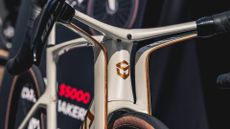 8 odd, quirky and cool tech innovations spotted at the Sea Otter Classic
8 odd, quirky and cool tech innovations spotted at the Sea Otter ClassicA kevlar wheel, an unusual aero bike, solid helmet straps, a bike made from recycled plastic bike, and more - 8 odd, quirky and cool tech innovations spotted at the Sea Otter Classic
By Daniel Palma Published
-
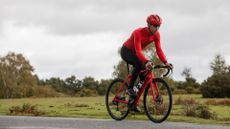 Cycling training plans: 10 week plans for beginners, intermediates and racers
Cycling training plans: 10 week plans for beginners, intermediates and racersGet into cycling, get fitter, or ride faster with our cycling training plans
By Anna Marie Abram Published
-
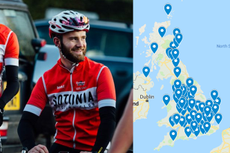 Find a cycling club near you
Find a cycling club near youA guide to some of the UK's best cycling clubs
By Richard Windsor Published
-
 Eight things that happen on every January club run
Eight things that happen on every January club runThe first month of the year brings clashes in form, fitness and motivation
By Michelle Arthurs-Brennan Published
-
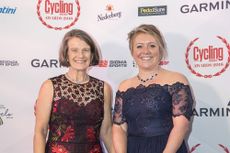 Otley Cycle Club president highlights 'ability to change' as reason for success as Cycling Weekly Club of the Year
Otley Cycle Club president highlights 'ability to change' as reason for success as Cycling Weekly Club of the YearYorkshire cycling club claimed the prize for Club of the Year in association with Santini at the inaugural Cycling Weekly Awards
By Michelle Arthurs-Brennan Published
-
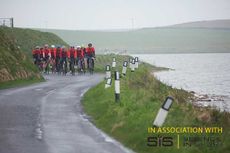 Ride With... Orkney Cycling Club
Ride With... Orkney Cycling ClubTrevor Ward ventures way up north for an outing with the Orkney Cycling Club
By Nigel Wynn Published
-
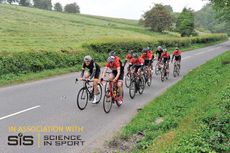 Ride With... Fusion CC
Ride With... Fusion CCSimon Warren joins the Dronfield-based Fusion Cycling Club for a lively jaunt in the Peak District
By Simon Warren Published
-
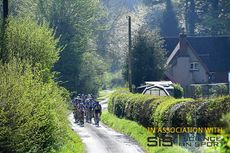 Ride With... Ludlow Cycling Club
Ride With... Ludlow Cycling ClubSean Lacey enjoys a gem of a ride with the Shropshire outfit
By Nigel Wynn Published
-
 Ride With... Lewes Wanderers Cycling Club
Ride With... Lewes Wanderers Cycling ClubJames West rides with the Lewes Wanderers Cycling Club, who have the South Downs at their disposal
By Nigel Wynn Published
-
 Ride With... Inverness Cycling Club
Ride With... Inverness Cycling ClubTrevor Ward hits the Highlands with the Inverness Cycling Club, a welcoming outfit that puts friendship first
By Cycling Weekly Published